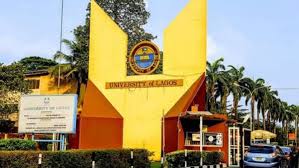News Investigators/ The Human Resources Development Centre (HRDC) of the University of Lagos (UNILAG) has introduced a nine-month professional diploma programme on election monitoring and administration to strengthen Nigeria’s democracy.
The Programme Coordinator, Ben Onwudinjo, disclosed this at a news conference in Abuja on Friday.
He said the programme, which will run in collaboration with The Praxis College of Engineering and Technology, Abuja, is scheduled to begin on Oct. 12.
According to him, the diploma is designed to ensure that the 2027 general elections are the most credible and transparent in Nigeria’s democratic history.
Mr. Onwudinjo said that prospective candidates include technical staff, politicians, and individuals interested in serving as local or international election monitors and observers.
He added that party agents, human rights activists, non-governmental organisations (NGOs), civil society organisations (CSOs), and aides to governors, ministers, and lawmakers at both federal and state levels are also eligible to apply.
The coordinator explained that applicants are expected to pay part of their tuition before commencement of the programme.
He said politicians, researchers and other stakeholders would equally benefit from learning modern techniques and identifying pitfalls in election monitoring and administration.
Mr. Onwudinjo said that, in line with UNILAG’s strong academic tradition, seasoned resource persons had been assembled from the United Nations, international and local election monitoring bodies, and academia.
He added that professors from all six geopolitical zones, members of the Nigerian Bar Association, international NGOs and other stakeholders would prepare participants in accordance with international best practices.
“Starting from Oct. 12, 2025, the programme shall last for nine months, after which successful candidates will be awarded the Professional Diploma Certificate in Election Monitoring and Administration of the University of Lagos.
“They will also be qualified to serve in the 2027 general elections and beyond as observers and consultants in related fields”.
Onwudinjo said letters had been sent to all governors, senators, ministers and members of the National and State Assemblies, urging them to nominate their technical staff for the programme.
“Each of the 36 state governors can nominate 100 candidates, each senator 20, members of the House of Representatives 10, and each state assembly member four candidates,” he said.
He added that private citizens and political stakeholders could also sponsor candidates as they deemed fit.
Onwudinjo encouraged interested persons to visit hrdc.unilag.edu.ng, click on “Admission into 2025/2026 session,” and follow the application instructions.
He said the part-time programme would hold on Saturdays online to allow wider participation, while examinations would be conducted through a computer-based test (CBT) format.
According to him, participants will also undergo lectures, assignments, term papers, supervised projects, continuous assessments, and field trips within two semesters.
Onwudinjo said successful candidates would qualify not only as election consultants and public policy analysts but also for career progression.
He added that participants would be able to access their transcripts directly from the University of Lagos.
He noted that participation in the maiden edition of the programme would form part of the criteria for the selection of technical staff for the 2027 general elections and subsequent polls.
Onwudinjo further said that the HRDC would simultaneously run four additional diploma courses during the period.
These, he said, include Anti-Corruption Management and Administration, Security and Counter-Security Management and Administration, Public Administration and Governance, and Business Administration and Entrepreneurship.
He added that invitations had been extended to the Economic and Financial Crimes Commission (EFCC), Department of State Services (DSS), Armed Forces, Nigeria Police Force, and others to nominate candidates for the programmes.


